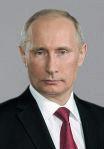
Democrats and Republicans in Congress can’t agree on a budget, cybersecurity, immigration, tax reform, or even how to sanction their corrupt colleagues. But, the House of Representatives unanimously opposed more United Nations control over the Internet.
“Today’s unanimous vote sends a clear and unmistakable message: the American people want to keep the Internet free from government control and prevent Russia, China and other nations from succeeding in giving the U.N. unprecedented power over Web content and infrastructure,” said, Congresswoman Mary Bono Mack, pre-empting a December meeting of the UN’s International Telecommunication Union (ITU), which will consider transferring control to member countries from its current “multi-stakeholder” structure of nonprofits.
While powerful countries around the globe want management over the Internet to be more egalitarian, many fear that the world isn’t ready for democratic control of the Internet. Should the ITU give all UN members equal control, “each of the 193 members gets a vote, no matter its record on fundamental rights,” explained Google’s Chief Internet Evangelist, and one of the “Fathers of the Internet,” Vint Cerf. As evidence against government control, he explained,
“Last June, then-Prime Minister Vladimir Putin stated the goal of Russia and its allies as ‘establishing international control over the Internet’ through the I.T.U. And in September 2011, China, Russia, Tajikistan and Uzbekistan submitted a proposal for an “International Code of Conduct for Information Security’ to the U.N. General Assembly, with the goal of establishing government-led ‘international norms and rules standardizing the behavior of countries concerning information and cyberspace.’”
On the other hand, it’s not unreasonable for countries to believe that a vital global resource shouldn’t be at the whim of a single actor (the US). But, if not the US, or a global governance organization with anti-democratic members, then who is best to protect the Internet?

